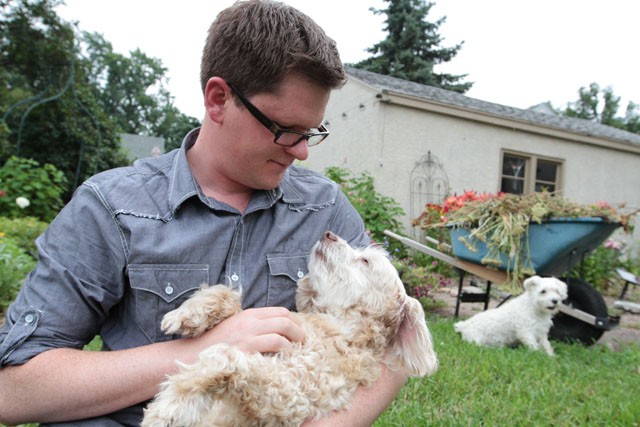The details might make one cringe, but University of Minnesota researchers say tracking pet injuries that the Animal Trauma Center sees — from near drownings to gunshot wounds — will result in better care.
Survey information about traumatic pet injuries will allow the University’s Veterinary Medical Center to improve the response and preparedness of its specialty teams that help treat trauma injuries, participating veterinarians say. The first eight weeks of data will also contribute to a multi-university study about animal trauma care.
Most commonly, trauma cases stem from cars hitting animals, said Dr. Kelly Hall, the principal investigator of the trauma study and a veterinarian at the University. The next-most common cases are penetrating wounds with causes as benign as getting caught on a stick in the woods and as sinister as stabbing.
Through a standard electronic medical record system, the center records when and how a trauma injury was caused, what time the animal was brought in and whether there were witnesses. It also tracks how many cases needed surgery, what specialty teams were required and whether a blood transfusion was performed.
Two other VMC researchers who are board-certified emergency care specialists are co-authoring and collecting data for the study, as are specialists from the Ontario Veterinary College at the University of Guelph, the University of Pennsylvania and Tufts University.
Researchers say that tracking more detailed data will result in better care for animals because researchers will know how to allocate their time and streamline processes when a trauma case comes in. For example, the trauma center recently formalized its policy for contacting backup specialists in an emergency, Hall said.
The study began June 27 when each trauma center began collecting data. Since then, each has been inputting data into a single online system.
Dr. Lisa Powell, one of the University veterinarians helping author the study, said she and the others manually input the data into the system. The study was engineered to take place during summer because there are more animals out and about.
The researchers hope to translate dog trauma data for use in treating human injuries, as well.
By combining data from four institutions, researchers have data from 33 cases after about two weeks. During the slower winter season from December through February, the University clinic alone saw 66 trauma cases.
“We’re at the trauma time of year,” Powell said.
Data collection for the study’s clinical purposes will end after eight weeks, but the questions will continue to be asked when trauma cases are checked in to the hospital.
Most trauma cases require a “team-based approach,” said Dr. David Lee, director of the VMC. If necessary, patients have access to surgical teams, neurologists, anesthesiologists, cardiologists, MRI equipment, internists, dentists and other specialists at the hospital.
“Criticalists ” — veterinarians specially trained in treating life-threatening wounds — work in teams at the University’s VMC similarly to teams of specialists at human trauma centers.
“Recently we’ve had a handful of really significant bite wounds,” Hall said. A dog that was attacked by a coyote last Thursday spent at least two days in the hospital, she said.
Minneapolis realtor Sarah Maske and her husband Chris Gauron said their dog Doji is like a little boy to them. More than a year ago a pit bull bit Doji. He developed pneumonia and was admitted to the VMC. There, Maske said they had the equipment and round-the-clock care Doji needed.
Last year, the center’s care of Roseville police dog Major, a German shepherd, got a lot of publicity.
“[Trauma cases] are stressful situations and I enjoy being able to talk with clients and help them through that stressful and emotional time,” said Dr. Julie Schildt, an emergency criticalist and the third University author of the study, in an email.
“I always feel badly for the animal that is suffering but equally I feel for the owner that is going through grief,” Schildt said.
“When I wheel a dog in on a stretcher my immediate thoughts are always focused on what I need to do for that patient.”











